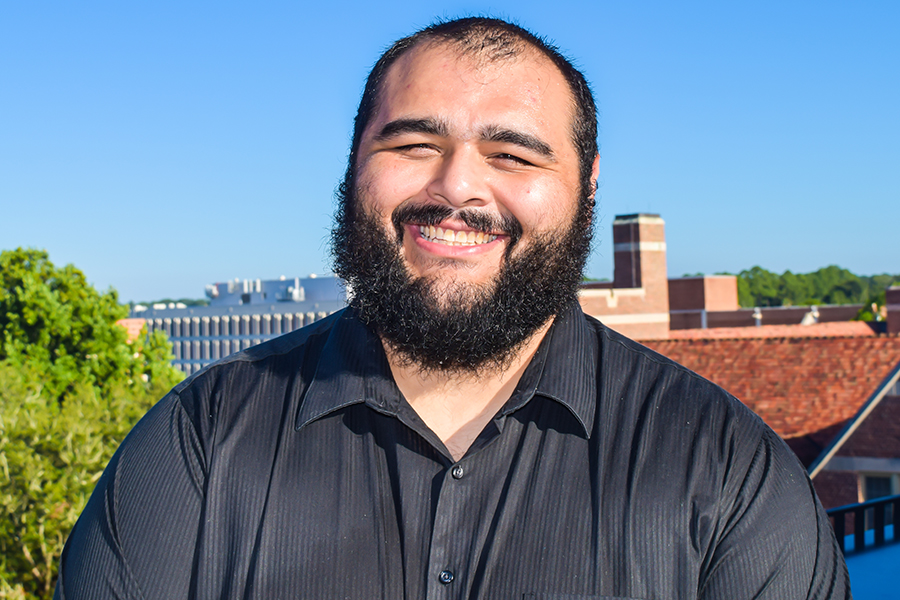Luis Saucedo

"To be the best in Nanoscience."
College: Arts and Sciences
Degree Program: Chemistry
Degree: Doctorate
Award: McKnight Doctoral Fellowship (2016)
Why FSU?
My primary focus when choosing a graduate program was finding one where I could see myself enjoying the research of multiple faculty members. I knew I wanted to pursue my degree primarily in nanomaterials research, and with my background I had to navigate between chemistry, physics, and materials science programs when conducting my search. I found that pursuing a chemistry degree would give me more opportunities to actually make the materials I would study, which left me with a handful of options to decide between. Ultimately, I decided on pursuing my degree in chemistry here at FSU for a few reasons. There were multiple renowned faculty in the nanoscience field, the facilities were state-of-the-art, and faculty have connections to national labs if any specialty experiments were needed. The additional support system I would have here as a McKnight Doctoral Fellow also played a large role in deciding on FSU over other options.
Motivation to pursue a graduate degree
Originally in undergrad I had planned to become a high school math and chemistry teacher, but during my second year of studies my advisor asked me to conduct research during the summer semester with her and three other students. The research I did that summer had two components; the first component was to use advanced mathematical techniques to model Midwest prairie land usage over the past 200 years. The second component was gathering field data on insect and plant diversity from a current prairie restoration plot, then statistically analyzing said data. I enjoyed that experience and the entire process of conducting research, which led me to change career paths from high school teacher to "scientist.” From talking to faculty at my undergrad, I knew I would need to pursue a graduate degree to have any meaningful impact doing research.
Importance of research and work
I am conducting research on magnetic nanomaterials. The work I do is influencing the magnetic properties of materials by altering the size, shape, and composition of said materials, and by forming nanocomposites. Magnetic materials play important roles in everyday life, including memory (hard drives, credit cards), speakers, and motors. The current state-of-the-art magnetic materials used are bulk rare-earth magnets, which are costly. By switching to the nanoscale, we can use smaller amounts of these materials, which reduces total cost and weight of material used.
Advice for anyone considering graduate school
Graduate school is a massive decision and time commitment. Make sure it is what you want to do with your future. If you do decide on getting an advanced degree, keep an open mind for where you go; there are plenty of faculty doing amazing research at schools you wouldn't think about looking into.
Career aspirations
My career goal is to lead a research team that conducts material development that will benefit society.
